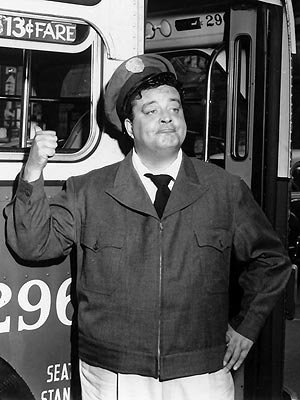John Petro
Message to the Wall Street Journal: You’re wrong about transit

Here’s the Wall Street Journal on the stimulus package:
Most of the rest of this project spending will go to such things as renewable energy funding ($8 billion) or mass transit ($6 billion) that have a low or negative return on investment. Most urban transit systems are so badly managed that their fares cover less than half of their costs. However, the people who operate these systems belong to public-employee unions that are campaign contributors to . . . guess which party?
Au contraire, Wall Street Journal, investment in mass transit has a high return on investment.
In terms of job creation, mass transit is one of the best investments that can be made. A study by Robert Pollin and Heidi Garrett-Peltier of the University of Massachusetts shows that investment in public transit creates more jobs per dollar than spending for defense, tax cuts, health care, education, and home weatherization. This analysis shows that transit investments create 19 percent more jobs than new road construction.
Additionally, investments in transit – specifically fixed-rail transit – increase property values, especially if land use policies for the areas near transit stations allow for higher density uses. Transit systems also increase a region’s competitiveness in terms of attracting businesses and workers. It’s no surprise that one of the biggest advocates for the new light rail system in Charlotte, NC was the city’s chamber of commerce. Check out this article, “Atlanta watches with envy as Phoenix light rail debuts,” in the Atlanta Journal Constitution.
“I continue to be frustrated that we can’t seem to move in that direction,” said Sam Olens, chairman of the Atlanta Regional Commission and the Cobb County commission. “We’re losing our competitive advantage.”Two years ago, the Metro Atlanta Chamber of Commerce invited reporters to hear officials from Phoenix and other cities talk about their new transportation initiatives. The message was clear: Atlanta and Georgia could be left in the dust.
On Wednesday, Sam Williams, president of the chamber, said in a statement that “cities that have made transportation a priority, like Phoenix, Dallas and Charlotte, continue to leapfrog Atlanta with respect to regional mobility. … While these areas make progress, we seem choked in congestion with little leadership to get us out.”
Mass transit also gives us a return on investment in terms of a higher quality of life, less air pollution, fewer greenhouse gas emissions, and the preservation of greenspace. These aren't things that can be easily quantified, therefore outside the analysis of the editors of the Journal.
In addition, the reason that so many transit systems are having budget problems isn’t because they are “badly managed,” but because tax revenues that support the systems are down dramatically. And, yes, most transit systems make up less than half of their revenue at the fare box. But roads don’t pay for themselves either. Only 60 percent of highway funds are from user fees such as tolls, the gas tax, and vehicle registration. The rest is subsidized in the form of other taxes such as property taxes or sales taxes.
Finally, lay off the public employees, WSJ. These people work hard for a living. They're entitled to give campaign contributions to the party that will look out after their interests, such as a good standard of living and access to public transit services.
John Petro: Author Bio | Other Posts
Posted at 3:24 PM, Jan 28, 2009 in
Transporation | Urban Affairs
Permalink | Email to Friend










